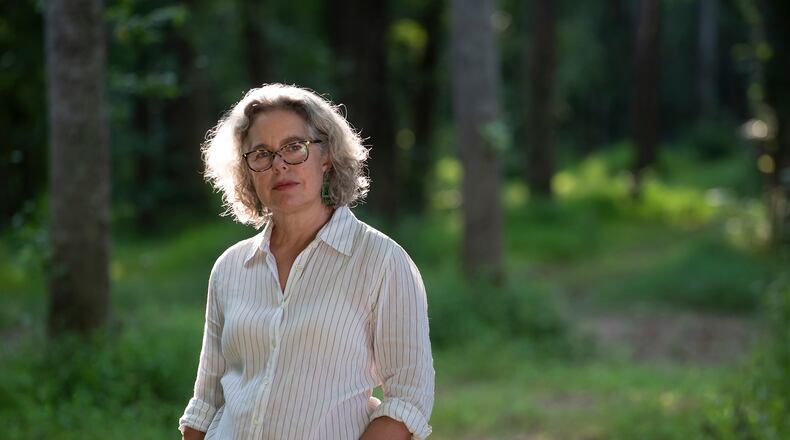In 2004, Darryl Hunt was released from prison in North Carolina after serving 19 years for a rape and murder he did not commit.
The odds finally seemed to be in his favor. He was a devout Muslim with a supportive community and a loving wife who welcomed him home. He received more than $2 million in settlements for his false arrest and used some of that money to start a non-profit to help fellow ex-convicts integrate back into society. A documentary about his case was the hit of the Sundance Film Festival, and Duke University gave him an honorary doctorate for his work.
It was not enough.
By 2016, Hunt was living in a transient hotel, using drugs, estranged from his family and lying to his friends. With no car of his own, he borrowed a friend’s pickup truck, drove to a secluded place and shot himself in the stomach. As he bled out, he had $1.76 in his pocket.
“Beyond Innocence” is the story of how what seemed like Darryl Hunt’s happy ending turned out to be a chapter, not an ending, and a testament to how profoundly post-traumatic stress disorder (PTSD) can affect prisoners for years after they are released. In a larger and more important sense, it is another reminder of how the United States’ prison-industrial complex has ruined so many men in so many ways, especially Black men.
Hunt’s mother was murdered when he was a boy, and he was raised by his grandfather. A gentle teen but a poor student, in and out of low-level trouble, he scored 70 on an IQ test, and was considered borderline for intellectual disability. (Of course, the well-documented problems of culturally biased IQ tests and Black Americans from underperforming schools is a separate rabbit hole of systemic racism.)
Hunt never had any contact at all with Deborah Sykes, a copy editor for the Winston-Salem Sentinel, who was raped and murdered on her way to work in summer 1984. But the pressure on police to quickly solve the murder of the pretty young white victim was immense, and sketchy witnesses mistakenly led them to Hunt.
There was no physical evidence connecting Hunt to the crime scene, he passed a lie detector test, and the district attorney knew the police case was shoddy. An in-house investigation by Winston-Salem police later found the police lied on a search warrant, ignored a similar rape that occurred after Hunt was in custody and completely stacked the deck against Hunt once he was in their sights.
Although 33% of the population of Winston-Salem at the time was Black, there was just one Black person on Hunt’s jury of 12. The district attorney, judge and jury all played their roles, and Hunt was convicted of murder in 1985.
The injustices did not end there. Once DNA testing became the gold standard in criminal justice in the mid-1990s and started clearing innocent people with wrongful convictions, Hunt’s DNA was tested. It did not match Sykes’ rapist. Unbelievably, a judge said that was not sufficient grounds for a new trial and Hunt continued to languish in prison.
Credit: Handout
Credit: Handout
In 2003, journalist Phoebe Zerwick wrote “Murder, Race, Justice: The State vs. Darryl Hunt,” an eight-part series for the Winston-Salem Journal, which eventually led to his exoneration and freedom. She remained in touch with Hunt after his release, and he eventually came to speak to her class at Wake Forest University, where she is the director of the journalism program.
Two months later, he killed himself. Clearly, she realized, she had only told part of his story.
Zerwick’s research is exemplary, and the story is a strong one. “Beyond Innocence” could have been more compelling if she had used more novelistic techniques, the way the best narrative non-fiction does, to place the reader in, as “Hamilton,” put it, “the room where it happened.” But she had a lot to overcome with uncooperative participants and scenes long gone cold.
As for his downward spiral after being freed, much of Hunt’s 19 years in prison was spent in solitary confinement, sometimes at his own request for his safety. Zerwick quotes a study in the Journal of the American Medical Association that prisoners who spent the most time in solitary were more likely to die after release from suicide, homicide or overdose, all of it linked to severe PTSD from our prison system. That affects the guilty and the unjustly convicted alike and is partly a result of punitive laws governing released prisoners.
“Scholars now make the case that our entire system of mass incarceration and the failure of Reconstruction and the civil rights movement to protect young Black men like Hunt from false arrest and conviction are all legacies of slavery,” Zerwick writes. Which is not to say that the issue is exclusively Southern. Although there are particularly brutal examples in the South, the way the prison-industrial complex treats Black men is a national problem.
Leave it to Maya Angelou to sum up the universality of Darryl Hunt’s case when she spoke at a fund-raiser for his defense before his trial: “We must remember that Winston-Salem is down South, but New York City is up South. Darryl Hunt exists in San Francisco, in Paris, in London, and you know there are many in South Africa. A case can be built here on any person founded on lies and hate that can send us to the gas chamber or the electric chair.”
NONFICTION
“Beyond Innocence: The Life Sentence of Darryl Hunt”
By Phoebe Zerwick
Atlantic Monthly Press
352 pages. $27
About the Author
The Latest
Featured



